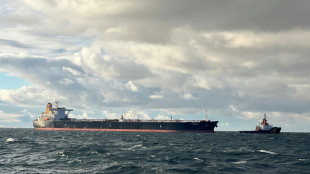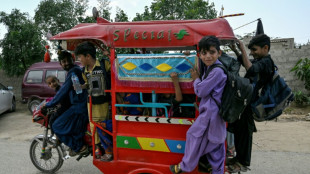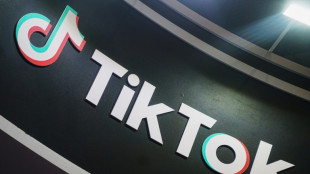
| BCC | -1.31% | 115.88 | $ | |
| SCS | -3.01% | 10.97 | $ | |
| NGG | -3.3% | 56.13 | $ | |
| RIO | 0.36% | 58.84 | $ | |
| GSK | -1.99% | 33.09 | $ | |
| BCE | -2.92% | 22.96 | $ | |
| CMSD | -0.65% | 23.25 | $ | |
| CMSC | -0.79% | 22.92 | $ | |
| JRI | -1.16% | 12.08 | $ | |
| RBGPF | 100% | 60.49 | $ | |
| BTI | -2.34% | 35.9 | $ | |
| VOD | -1.99% | 8.05 | $ | |
| BP | 0.54% | 31.29 | $ | |
| AZN | 0.64% | 67.01 | $ | |
| RYCEF | -0.42% | 7.07 | $ | |
| RELX | -0.86% | 46.37 | $ |

Hectic horse-trading as WTO talks enter overtime
Talks at the World Trade Organization were going deep into overtime on Thursday with countries trying to thrash out an over-arching deal encompassing food security, fishing and combating Covid-19.
With ministers struggling to conclude agreements on each separate topic, countries were going round the clock making tit-for-tat trade-offs which, they hope, could see several measures go through as one package.
Ministers from the global trade body's 164 members have been talking since Sunday at the WTO's headquarters in Geneva, in their first conference since December 2017.
They added a fifth day of talks to try to break the deadlock -- and prove the organisation has a role in tackling big global challenges.
But despite working on through Wednesday night, even Thursday's negotiations were going past their scheduled deadline.
All the delegation chiefs were set to meet from 5:00 pm (1500 GMT) to try and finalise a conclusion based on progress made in Thursday's frantic talks.
"We are still optimistic that we can have some really positive outcomes," New Zealand's trade minister Damien O'Connor told AFP as the daytime sessions started.
"There is a lot of commitment to try and move things forward and it's encouraging.
- 'On the march' -
EU trade commissioner Valdis Dombrovskis tweeted he was "on the march" towards a final agreement that was now "getting closer".
Honduras's WTO ambassador said ministers were "working towards a result not seen in many years in the WTO", adding: "success is mandatory".
"We'll be in there until the last hour," another Geneva-based diplomat told reporters.
"We remain committed to seeing what we can deliver from this."
The WTO only takes decisions by consensus among all its members, making deals all the harder to hammer out.
Ministers have been trying to secure deals on curbing harmful fishing subsidies; temporarily waiving Covid-19 vaccine patents; food security; agriculture; e-commerce; the WTO's response to pandemics; and reform of the organisation itself.
Countries hit a brick wall late Wednesday trying to secure each separate deal on its own merits, so they spent the night horse-trading to try to keep them all afloat in some format.
US Trade Representative Katherine Tai and others tweeted pictures of first light emerging over Lake Geneva.
Giant trays of sandwiches kept delegates going through the night after they finished all the fruit juice in the building.
"They're looking at a broad package: what can be achieved, trade-offs in different areas," a Geneva trade official told reporters.
"We're into the real bargaining part of the meeting. This is where all the action is happening."
- Fisheries exemption -
WTO chief Ngozi Okonjo-Iweala, who took over in March 2021, has hinged her leadership on breathing new life into the sclerotic organisation.
The former foreign and finance minister of Nigeria is hoping to pull off a coup by finalising a long-sought deal on curbing harmful fishing subsidies.
Negotiations towards banning subsidies that encourage overfishing and threaten the sustainability of the planet's fish stocks have been going on at the WTO for more than two decades.
But India has been pushing for a 25-year exemption -- far longer than many countries are comfortable with.
Some diplomats have accused India of being intransigent across the board.
"India has always been a reluctant trading partner," said Harsh V Pant, an international relations professor at King's College London university's India Institute.
"India feels that it has more room today than it had in the past. It has a greater future potential and feels that it is in a geopolitical sweet spot where everyone wants to befriend it -- and it can use that as leverage," he told AFP.
- E-commerce wrangle -
Ministers have been arguing over whether to extend the moratorium on imposing customs duties on electronic transactions, in place since 1998.
But India and South Africa say it has a negative impact, with Pakistan, Indonesia and Sri Lanka also sceptical.
WTO deputy director-general Anabel Gonzalez said there were "intense negotiations" going on in a packed room.
"It's difficult, but I am hopeful," she said.
The United States told an earlier e-commerce meeting that the moratorium had supported the growth of digital commerce, which had provided an "economic lifeline" during the Covid-19 pandemic, according to a Geneva trade official.
rjm-burs/vog/jv
X.Maes--JdB



